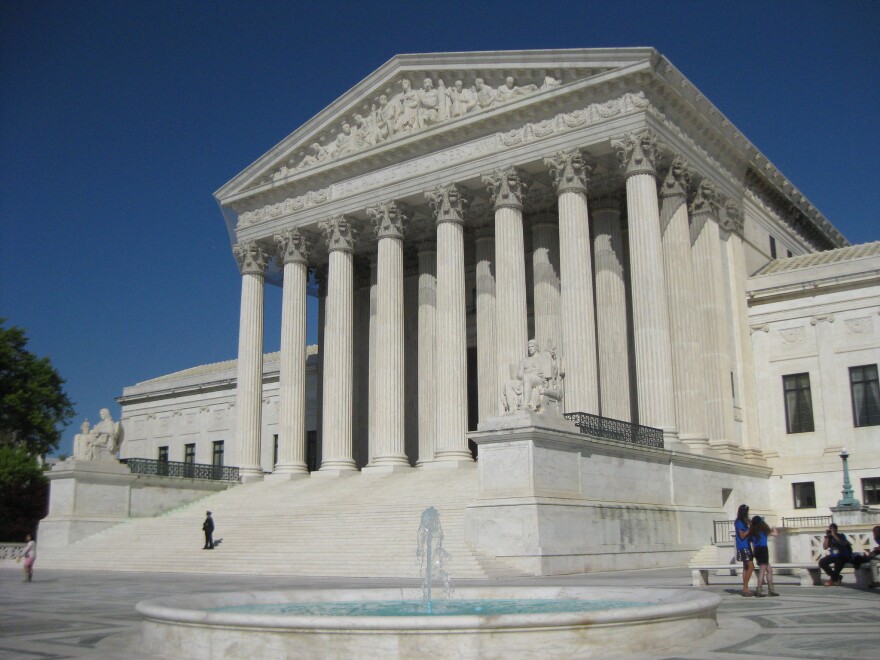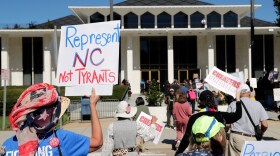Updated 4:31 p.m., May 22, 2017
The Supreme Court struck down two congressional districts in North Carolina Monday because race played too large a role in their creation.
The justices ruled that Republicans who controlled the state legislature and governor's office in 2011 placed too many African-Americans in the two districts. The result was to weaken African-American voting strength elsewhere in North Carolina.
Both districts have since been redrawn and the state conducted elections under the new congressional map in 2016. Even with the new districts, Republicans maintained their 10-3 edge in congressional seats.
Justice Elena Kagan, writing for the court, said the state did not offer compelling justifications to justify its reliance on race in either district.
The issue of race and redistricting one is a familiar one at the Supreme Court and Kagan noted that one of the districts was "making its fifth(!) appearance before this court."
States have to take race into account when drawing maps for legislative, congressional and a host of municipal political districts. At the same time, race can't be the predominant factor without very strong reasons, under a line of high court cases stretching back 20 years.

In a statement, Gov. Roy Cooper said North Carolina voters deserve a level playing field and fair elections.
"I'm glad the Supreme Court agrees," Cooper said. "The North Carolina Republican legislature tried to rig the Congressional elections by drawing unconstitutional districts that discriminated against African American and that's wrong."
The court's majority rejected GOP claims that political considerations were the primary factor in how the maps were drawn, according to UNC Constitutional Law Professor Michael Gerhardt.
"That attempt, which in a sense was like shoveling or pushing black voters into particular districts in order to help themselves, the legislators, in other districts, that attempt turns out to be unconstitutional because it was an attempt that basically was founded on race,” Gerhardt said.
Gerhardt said the 5-3 opinion is a rebuke of how GOP legislators went about re-drawing two of North Carolina's 13 congressional districts after the most recent census.
"By trying to increase black representation in a couple of these districts they weakened it elsewhere and so it was a combination of those things that became fatal," he said.
Conservative justice Clarence Thomas joined four liberals in the majority opinion. Democrats hailed the ruling. Republicans say it is difficult to keep up with the courts' ever-changing rules on redistricting.
A three-judge federal court had previously struck down the two districts. The justices upheld the lower court ruling on both counts.
The court unanimously affirmed the lower court ruling on District 1 in northeastern North Carolina. Kagan wrote that the court will not "approve a racial gerrymander whose necessity is supported by no evidence."
The justices split 5-3 on the other district, District 12 in the southwestern part of the state. Justice Clarence Thomas joined the four liberal justices to form a majority. Chief Justice John Roberts and Justices Samuel Alito and Anthony Kennedy dissented. Justice Neil Gorsuch did not part in the case.
The state insisted that race played no role at all in the creation of one district. Instead, the state argued that Republicans who controlled the redistricting process wanted to leave the district in Democratic hands, so that the surrounding districts would be safer for Republicans.
"The evidence offered at trial...adequately supports the conclusion that race, not politics, accounted for the district's reconfiguration," Kagan wrote.
Alito said in dissent that the evidence instead shows that the district's borders "are readily explained by political considerations."








